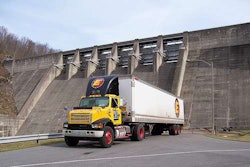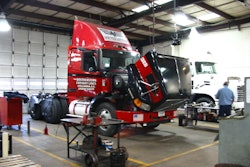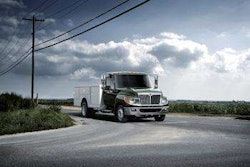The Federal Motor Carrier Safety Administration announced today, June 22, that it is eliminating the requirement for most for-hire motor common carriers of property and freight forwarders to maintain cargo insurance in prescribed minimum amounts and file evidence of this insurance with FMCSA. Household goods motor carriers and household goods freight forwarders will continue to be subject to the requirement. The final rule, published today in the Federal Register, is effective March 21, 2011. To view the rule, go to www.regulations.gov and search docket number FMCSA-2010-0189.
When jurisdiction over motor carrier and freight forwarder cargo insurance was transferred to FMCSA following enactment of the Motor Carrier Safety Improvement Act of 1999, FMCSA continued to register carriers as either common or contract under the transition rule because the agency had not yet implemented the new unified registration system. In the May 2005 Notice of Proposed Rulemaking designed to implement this new system, FMCSA proposed to eliminate the cargo insurance requirement for all motor carriers and freight forwarders except those involved in the transportation of household goods for individual shippers.
Section 4303 of the Safe, Accountable, Flexible, Efficient Transportation Equity Act: A Legacy for Users (SAFETEA-LU) mandated that the transition rule be terminated by Jan. 1, 2007. Consequently, all for-hire motor carriers subject to the agency’s commercial jurisdiction were required to be issued Motor Carrier Certificates of Registration that no longer classified them as common or contract carriers. Section 4303 also provided that all exempt for-hire and private motor carriers registered with FMCSA on Jan. 1, 2005, automatically would be considered registered for purposes of the Unified Carrier Registration Agreement.
As a result of the termination of the transition rule, FMCSA’s cargo insurance regulations, which expressly applied only to common carriers and freight forwarders, no longer were consistent with the governing statute. Because of this inconsistency and the resulting confusion over the scope of the agency’s cargo insurance requirements, FMCSA considered it necessary to issue a final rule amending these requirements prior to issuance of a final rule. With the elimination of the distinction between common and contract carriers for registration purposes, FMCSA had to determine whether the requirement for cargo insurance should be retained and extended to all carriers, including the 70,400 contract carriers currently exempt from the requirement, or eliminated for some or all 96,300 common carriers and 1,600 freight forwarders.
In its NPRM on the Unified Registration System, FMCSA proposed limiting the requirement for cargo insurance to household goods motor carriers and household goods freight forwarders in order to protect individual shippers. In its discussion of the proposal, the agency noted that motor carriers typically have cargo insurance well in excess of the regulatory requirements, in part because many shippers require such insurance as a condition of doing business. Some common carriers also offer shippers the opportunity to purchase additional cargo insurance. In addition, shippers always have had the opportunity to purchase cargo or inland-marine insurance directly from insurance providers rather than rely on motor carriers and freight forwarders to provide coverage for loss and damage risks. Contract carriers negotiate issues of insurance and liability when they write contracts with shippers. FMCSA said that extending the coverage to the approximate 70,400 exclusive contract carriers would impose a burden on these carriers while providing little or no benefit to their customers, who already had contractual agreements dealing with carrier liability and insurance.
The only shippers that FMCSA considered in need of the protection provided by the cargo insurance requirement are individuals who arrange to move their own household goods. FMCSA concluded that such individuals are less knowledgeable about carrier liability requirements and need the protection afforded by the existing regulations.












